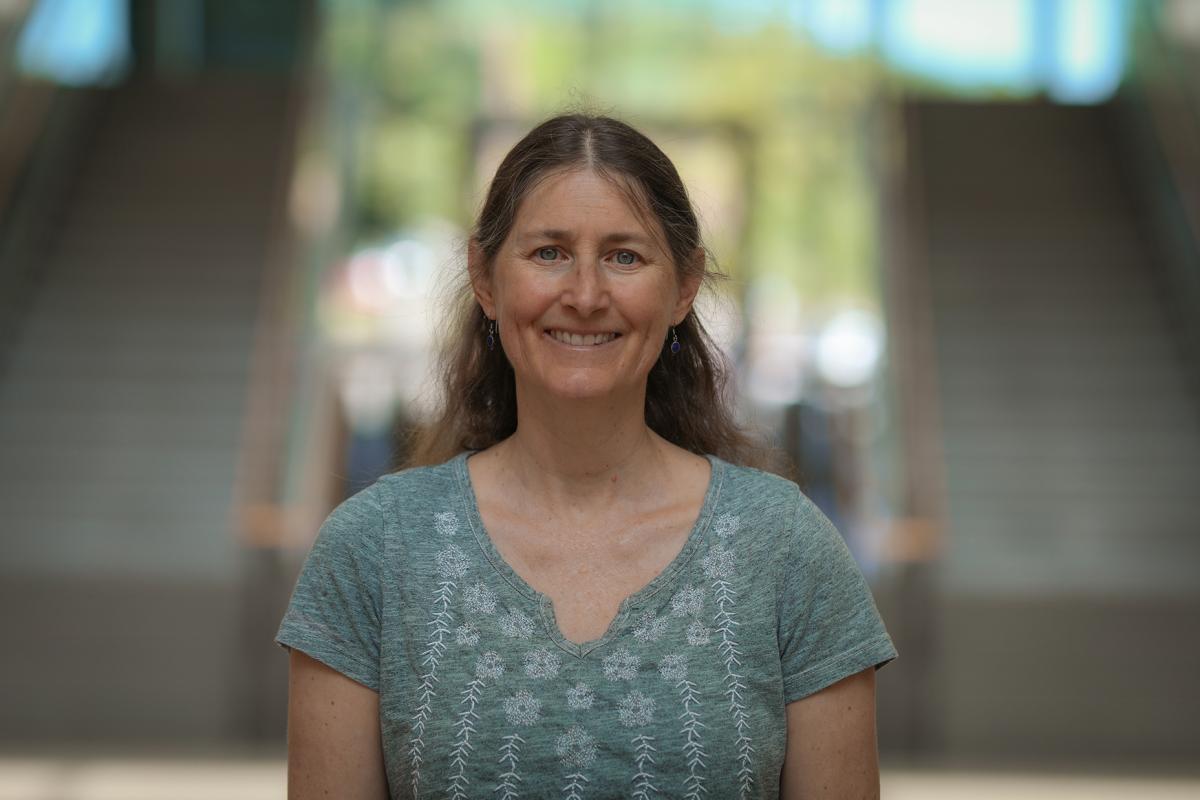FSU biologist earns Fulbright Scholar Award to conduct climate research in Sweden

A Florida State University faculty member has received a Fulbright award to travel abroad to conduct biological research on the relationship between climate change and phenology, or the study of the timing of cyclical and seasonal events affecting living things.
Professor of biological science Nora Underwood will use the Fulbright U.S. Scholar Award to conduct new research at Stockholm University, Sweden, that explores the impact of climate change on the phenology of plants and birds. The award also recognizes Underwood’s record of successful graduate student mentorship.
“This Fulbright award provides me the opportunity to collaborate again with excellent colleagues at Stockholm University, which is extremely exciting,” said Underwood, who received an honorary doctorate from Stockholm University in 2019 for her contributions to the university’s research and education activities. “After living and working in Sweden for a full year with my family, I’m looking forward to bringing the results of my work back to my students and department at FSU.”
The Fulbright U.S. Scholar Program, the largest fellowship program for researchers, offers over 400 awards in more than 135 countries for U.S. citizens to teach, conduct research, and carry out professional projects around the world. Five FSU faculty members received Fulbright Scholar Awards for 2024-2025.
Underwood will work in Sweden until Summer 2025, primarily studying a unique long-term data set. Between 1873 and 1926, a Swedish scientist sent cards to people around Sweden requesting information on when they observed seasonal changes in flora and fauna, such as when fruit trees bloomed that year. Underwood will analyze and compare 19th-century data with present-day phenology records to understand how climate change has affected the natural timing of biological events in the 21st century.
Additionally, Underwood will collaborate with leaders in graduate studies at Swedish universities on how to best support faculty and students through graduate mentoring. She plans to publish general guidance for building stronger and more successful mentoring relationships in science.
“My time abroad will allow me to explore Swedish phenology and climate change, as well as how faculty-graduate student interactions are done differently in Sweden,” Underwood said. “By putting together the practices that work for them and the graduate mentorship practices that work at FSU, we can offer a better education overall at both institutions and share this information with universities around the world.”
Underwood studies population dynamics, or how the number of organisms such as insects or plants varies through space and time. Her work investigates why, for example, in one year a geographic region may experience more bugs or wildflowers, and why in another year, those same organisms may not be as plentiful. Because Underwood often studies insect populations, her research team’s ability to identify patterns and make predictions about insect behaviors can have significant impacts for agricultural systems.
“Insect pollinators are responsible for our agricultural productivity, and keeping insect pests controlled is a central goal of agriculture,” Underwood said. “By better understanding insect interactions with agricultural systems such as soybeans or tomatoes and how those interactions are changing in response to varying climate, we can manage organisms' populations in ways that benefit us and avoid negative consequences in the natural world.”
As global temperatures continue to increase due to climate change, Underwood’s work has shifted to understanding how population dynamics change in response to environmental factors. As Earth warms and insects can breed earlier and faster, regions may experience more insect activity overall, affecting crop productivity and survival worldwide. Underwood plans to test this hypothesis, among others, in Sweden this summer.
“Nora is a world-renowned expert on ecological systems, coordinating collaborative projects that span decades of observations on natural systems and involve generations of researchers,” said Tom Houpt, department chair and professor of biological science. “She has not only made huge scientific contributions to our field, but she is a leader in graduate education and mentoring and a role model for all FSU biology faculty; our department is excited to see what she accomplishes next.”
Underwood earned her doctorate from Duke University in 1997 before joining FSU’s faculty in 2002. She has published research in prestigious journals, including Science Magazine, the Annual Review of Ecology, Evolution, and Systematics and the Quarterly Review of Biology, and in 2022 received FSU’s University Distinguished Teacher Award and the Outstanding Graduate Faculty Mentor Award. Underwood currently serves as principal investigator on the Rocky Mountain Biological Laboratory Phenology Project, a global data resource on phenology and climate change that has been active in Colorado for over 50 years.
For more information on Underwood’s work and the FSU Department of Biological Science, visit bio.fsu.edu.
